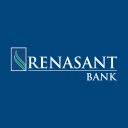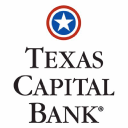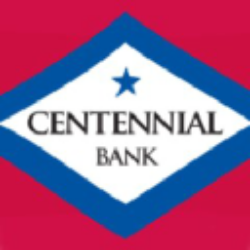PNFP

Pinnacle Financial Partners, Inc.
PNFP
(3.5)116,52 USD
0.85% ROA
6.79% ROE
17.76x PER
7.257.857.523,00 USD
44.65% DER
0.94% Yield
16.41% NPM
Pinnacle Financial Partners, Inc. Stock Analysis
Pinnacle Financial Partners, Inc. Fundamental Analysis
Fundamental analysis in stock investing is like studying the foundation of a house before buying it. It involves looking at a company's financial health, like its earnings, assets, and debts, to determine if it's a good investment based on its fundamental strength and potential for growth.
| # | Analysis | Rating |
|---|---|---|
| 1 |
PBV
With a remarkably low PBV ratio (0.95x), the stock offers substantial upside potential at a bargain price. |
|
| 2 |
DER
The stock has a minimal amount of debt (43%) relative to its ownership, showcasing a strong financial position and lower risk for investors. |
|
| 3 |
Revenue Growth
With a track record of consistent revenue growth in the past five years, this company presents a compelling opportunity. |
|
| 4 |
Assets Growth
This company's revenue has experienced steady growth over the last five years, indicating a reliable and prosperous financial trajectory. |
|
| 5 |
Dividend
The company's consistent dividend payouts over the past five years exemplify its strong commitment to providing shareholders with reliable returns, making it an attractive investment option. |
|
| 6 |
ROE
ROE in an average range (10.57%) suggests satisfactory profitability and decent utilization of shareholders' equity. |
|
| 7 |
ROA
The stock's ROA (1.33%) shows that it's doing a pretty good job at making money from its assets, making it a solid choice to invest and earn steady profits. |
|
| 8 |
Graham Number
Based on the Graham number, this company's stock price appears to be lower than its intrinsic value, signaling a potentially favorable investment choice. |
|
| 9 |
Buffet Intrinsic Value
The company's stock presents an enticing opportunity as it appears undervalued (216) by Warren Buffett's formula, indicating that its intrinsic value exceeds the market price. |
|
| 10 |
Net Profit Growth
This company's net profit has remained stagnant over the past five years, indicating a lack of growth and making it a less favorable investment option. |
|
| 11 |
Dividend Growth
The company's dividend growth has remained unchanged for three years, signaling a lack of positive momentum and making it a less favorable investment choice. |
Pinnacle Financial Partners, Inc. Technical Analysis
Technical analysis in stock investing is like reading the patterns on a weather map to predict future weather conditions. It involves studying past stock price movements and trading volumes to make predictions about where a stock's price might go next, without necessarily looking at the company's financial health.
| # | Analysis | Recommendation |
|---|---|---|
| 1 | Awesome Oscillator | Buy |
| 2 | MACD | Buy |
| 3 | RSI | Hold |
| 4 | Stoch RSI | Sell |
Pinnacle Financial Partners, Inc. Price Chart
Financial Statements
Financial statements are like report cards for companies. They show how much money a company makes (income statement), what it owns and owes (balance sheet), and where it spends its money (cash flow statement), helping stock investors understand if a company is healthy and worth investing in.
Income Statements
An income statement for a company is like a scoreboard for its profits and losses. It shows how much money the company made (revenue) and how much it spent to make that money (expenses), helping stock investors see if a company is making a profit or not.
Revenue in stock investing is the total amount of money a company earns from its sales, and it's a key factor that investors consider to assess a company's financial performance and growth potential.
| Year | Revenue | Growth |
|---|---|---|
| 2000 | 496.057 | |
| 2001 | 4.831.111 | 89.73% |
| 2002 | 9.931.246 | 51.35% |
| 2003 | 16.186.287 | 38.64% |
| 2004 | 25.737.198 | 37.11% |
| 2005 | 34.431.612 | 25.25% |
| 2006 | 76.739.312 | 55.13% |
| 2007 | 98.232.939 | 21.88% |
| 2008 | 148.933.266 | 34.04% |
| 2009 | 170.442.889 | 12.62% |
| 2010 | 180.688.432 | 5.67% |
| 2011 | 189.404.621 | 4.6% |
| 2012 | 206.261.094 | 8.17% |
| 2013 | 223.002.214 | 7.51% |
| 2014 | 245.587.027 | 9.2% |
| 2015 | 302.571.699 | 18.83% |
| 2016 | 414.594.420 | 27.02% |
| 2017 | 650.252.134 | 36.24% |
| 2018 | 885.990.000 | 26.61% |
| 2019 | 939.857.000 | 5.73% |
| 2020 | 1.056.089.000 | 11.01% |
| 2021 | 1.205.861.000 | 12.42% |
| 2022 | 1.399.951.000 | 13.86% |
| 2023 | 1.531.940.000 | 8.62% |
| 2023 | 1.601.775.000 | 4.36% |
| 2024 | 2.734.624.000 | 41.43% |
Research and Development Expenses are the costs a company incurs to create and improve its products or services, which can be important for investors to evaluate a company's innovation and potential for future growth.
| Year | Research and Development Expenses | Growth |
|---|---|---|
| 2000 | 0 | |
| 2001 | 0 | 0% |
| 2002 | 0 | 0% |
| 2003 | 0 | 0% |
| 2004 | 0 | 0% |
| 2005 | 0 | 0% |
| 2006 | 0 | 0% |
| 2007 | 0 | 0% |
| 2008 | 0 | 0% |
| 2009 | 0 | 0% |
| 2010 | 0 | 0% |
| 2011 | 0 | 0% |
| 2012 | 0 | 0% |
| 2013 | 0 | 0% |
| 2014 | 0 | 0% |
| 2015 | 0 | 0% |
| 2016 | 0 | 0% |
| 2017 | 0 | 0% |
| 2018 | 0 | 0% |
| 2019 | 0 | 0% |
| 2020 | 0 | 0% |
| 2021 | 0 | 0% |
| 2022 | 0 | 0% |
| 2023 | 0 | 0% |
| 2023 | 0 | 0% |
| 2024 | 0 | 0% |
General and Administrative Expenses are the costs a company incurs to run its day-to-day operations, such as office rent, salaries, and utilities, which investors consider to understand a company's overall efficiency and management effectiveness.
| Year | General and Administrative Expenses | Growth |
|---|---|---|
| 2000 | 1.676.391 | |
| 2001 | 4.137.863 | 59.49% |
| 2002 | 5.236.792 | 20.98% |
| 2003 | 7.260.982 | 27.88% |
| 2004 | 9.540.641 | 23.89% |
| 2005 | 13.130.779 | 27.34% |
| 2006 | 27.469.275 | 52.2% |
| 2007 | 36.145.588 | 24% |
| 2008 | 53.752.057 | 32.75% |
| 2009 | 73.896.266 | 27.26% |
| 2010 | 96.377.209 | 23.33% |
| 2011 | 93.977.499 | -2.55% |
| 2012 | 78.056.564 | -20.4% |
| 2013 | 82.646.967 | 5.55% |
| 2014 | 88.319.567 | 6.42% |
| 2015 | 105.928.914 | 16.62% |
| 2016 | 140.818.772 | 24.78% |
| 2017 | 209.661.812 | 32.84% |
| 2018 | 271.673.000 | 22.83% |
| 2019 | 313.359.000 | 13.3% |
| 2020 | 334.483.000 | 6.32% |
| 2021 | 436.006.000 | 23.28% |
| 2022 | 510.175.000 | 14.54% |
| 2023 | 521.376.000 | 2.15% |
| 2023 | 563.640.000 | 7.5% |
| 2024 | 600.468.000 | 6.13% |
EBITDA stands for Earnings Before Interest, Taxes, Depreciation, and Amortization. It is a measure that helps stock investors analyze a company's profitability by looking at its earnings without considering certain expenses. This helps to get a clearer picture of the company's financial performance and its ability to generate cash flow.
| Year | EBITDA | Growth |
|---|---|---|
| 2000 | 0 | |
| 2001 | 0 | 0% |
| 2002 | 0 | 0% |
| 2003 | 0 | 0% |
| 2004 | 9.789.335 | 100% |
| 2005 | 0 | 0% |
| 2006 | 0 | 0% |
| 2007 | 0 | 0% |
| 2008 | 0 | 0% |
| 2009 | 0 | 0% |
| 2010 | 0 | 0% |
| 2011 | 0 | 0% |
| 2012 | 82.455.737 | 100% |
| 2013 | 96.884.686 | 14.89% |
| 2014 | 114.934.908 | 15.7% |
| 2015 | 153.366.249 | 25.06% |
| 2016 | 191.570.448 | 19.94% |
| 2017 | 0 | 0% |
| 2018 | 0 | 0% |
| 2019 | 505.879.000 | 100% |
| 2020 | 416.561.000 | -21.44% |
| 2021 | 705.161.000 | 40.93% |
| 2022 | 759.791.000 | 7.19% |
| 2023 | 678.980.000 | -11.9% |
| 2023 | 0 | 0% |
| 2024 | -21.552.000 | 100% |
Gross profit is the money a company makes from selling its products or services after subtracting the cost of producing or providing them, and it is an important measure for investors to understand a company's profitability.
| Year | Gross Profit | Growth |
|---|---|---|
| 2000 | 496.057 | |
| 2001 | 4.831.111 | 89.73% |
| 2002 | 9.931.246 | 51.35% |
| 2003 | 16.186.287 | 38.64% |
| 2004 | 25.737.198 | 37.11% |
| 2005 | 34.431.612 | 25.25% |
| 2006 | 76.739.312 | 55.13% |
| 2007 | 98.232.939 | 21.88% |
| 2008 | 148.933.266 | 34.04% |
| 2009 | 170.442.889 | 12.62% |
| 2010 | 180.688.432 | 5.67% |
| 2011 | 189.404.621 | 4.6% |
| 2012 | 197.020.759 | 3.87% |
| 2013 | 214.686.916 | 8.23% |
| 2014 | 235.952.704 | 9.01% |
| 2015 | 288.832.257 | 18.31% |
| 2016 | 393.026.482 | 26.51% |
| 2017 | 620.051.718 | 36.61% |
| 2018 | 841.937.000 | 26.35% |
| 2019 | 939.857.000 | 10.42% |
| 2020 | 1.056.089.000 | 11.01% |
| 2021 | 1.205.861.000 | 12.42% |
| 2022 | 1.399.951.000 | 13.86% |
| 2023 | 1.531.940.000 | 8.62% |
| 2023 | 1.601.775.000 | 4.36% |
| 2024 | 2.734.572.000 | 41.43% |
Net income in stock investing is like the money a company actually gets to keep as profit after paying all its bills, and it's an important measure to understand how well a company is doing financially.
| Year | Net Profit | Growth |
|---|---|---|
| 2000 | -2.255.189 | |
| 2001 | -1.136.665 | -98.4% |
| 2002 | 648.060 | 275.4% |
| 2003 | 2.554.639 | 74.63% |
| 2004 | 5.318.910 | 51.97% |
| 2005 | 8.055.268 | 33.97% |
| 2006 | 17.927.033 | 55.07% |
| 2007 | 23.041.355 | 22.2% |
| 2008 | 30.873.918 | 25.37% |
| 2009 | -35.499.967 | 186.97% |
| 2010 | -24.300.492 | -46.09% |
| 2011 | 43.737.367 | 155.56% |
| 2012 | 41.883.881 | -4.43% |
| 2013 | 57.726.201 | 27.44% |
| 2014 | 70.471.167 | 18.09% |
| 2015 | 95.509.402 | 26.22% |
| 2016 | 127.224.695 | 24.93% |
| 2017 | 173.979.487 | 26.87% |
| 2018 | 359.440.000 | 51.6% |
| 2019 | 400.881.000 | 10.34% |
| 2020 | 312.321.000 | -28.36% |
| 2021 | 527.323.000 | 40.77% |
| 2022 | 560.742.000 | 5.96% |
| 2023 | 530.412.000 | -5.72% |
| 2023 | 562.152.000 | 5.65% |
| 2024 | 212.648.000 | -164.36% |
EPS, or earnings per share, is a measure that shows how much profit a company has earned for each outstanding share of its stock, and it is important for stock investors as it helps understand the profitability of a company and compare it with other companies in the market.
| Year | Earning per Share (EPS) | Growth |
|---|---|---|
| 2000 | -1 | |
| 2001 | 0 | 0% |
| 2002 | 0 | 0% |
| 2003 | 0 | 0% |
| 2004 | 1 | 0% |
| 2005 | 1 | 0% |
| 2006 | 1 | 100% |
| 2007 | 1 | 0% |
| 2008 | 1 | 0% |
| 2009 | -1 | 200% |
| 2010 | -1 | 0% |
| 2011 | 1 | 100% |
| 2012 | 1 | 0% |
| 2013 | 2 | 0% |
| 2014 | 2 | 50% |
| 2015 | 3 | 0% |
| 2016 | 3 | 0% |
| 2017 | 3 | 0% |
| 2018 | 5 | 50% |
| 2019 | 5 | 20% |
| 2020 | 4 | -25% |
| 2021 | 7 | 33.33% |
| 2022 | 7 | 14.29% |
| 2023 | 7 | -16.67% |
| 2023 | 7 | 14.29% |
| 2024 | 3 | -250% |
Cashflow Statements
Cashflow statements show the movement of money in and out of a company, helping stock investors understand how much money a company makes and spends. By examining cashflow statements, investors can assess if a company is generating enough cash to pay its bills, invest in growth, and provide returns to stockholders.
Free cash flow is the leftover cash that a company generates after covering its operating expenses and capital expenditures, which is important for stock investors as it shows how much money a company has available to invest in growth, pay dividends, or reduce debt.
| Year | Free Cashflow | Growth |
|---|---|---|
| 2000 | -5.740.636 | |
| 2001 | -2.520.666 | -127.74% |
| 2002 | 2.717.529 | 192.76% |
| 2003 | 722.989 | -275.87% |
| 2004 | 1.597.203 | 54.73% |
| 2005 | 4.732.640 | 66.25% |
| 2006 | 7.256.485 | 34.78% |
| 2007 | 10.322.213 | 29.7% |
| 2008 | 24.183.094 | 57.32% |
| 2009 | 71.113.729 | 65.99% |
| 2010 | 119.980.703 | 40.73% |
| 2011 | 111.058.490 | -8.03% |
| 2012 | 108.413.213 | -2.44% |
| 2013 | 121.141.433 | 10.51% |
| 2014 | 89.179.593 | -35.84% |
| 2015 | 72.862.483 | -22.39% |
| 2016 | 109.580.384 | 33.51% |
| 2017 | 94.442.330 | -16.03% |
| 2018 | 447.018.000 | 78.87% |
| 2019 | 392.135.000 | -14% |
| 2020 | 388.064.000 | -1.05% |
| 2021 | 634.266.000 | 38.82% |
| 2022 | 540.578.000 | -17.33% |
| 2023 | 199.158.999 | -171.43% |
| 2023 | 0 | 0% |
| 2024 | 147.896.000 | 100% |
Operating cash flow represents the cash generated or consumed by a company's day-to-day operations, excluding external investing or financing activities, and is crucial for stock investors as it shows how much cash a company is generating from its core business operations.
| Year | Operating Cashflow | Growth |
|---|---|---|
| 2000 | -2.736.868 | |
| 2001 | -1.205.805 | -126.97% |
| 2002 | 3.394.852 | 135.52% |
| 2003 | 4.633.737 | 26.74% |
| 2004 | 6.742.072 | 31.27% |
| 2005 | 8.171.556 | 17.49% |
| 2006 | 11.906.161 | 31.37% |
| 2007 | 16.394.026 | 27.38% |
| 2008 | 33.632.874 | 51.26% |
| 2009 | 90.305.539 | 62.76% |
| 2010 | 129.589.112 | 30.31% |
| 2011 | 113.089.755 | -14.59% |
| 2012 | 114.277.665 | 1.04% |
| 2013 | 126.435.352 | 9.62% |
| 2014 | 95.058.155 | -33.01% |
| 2015 | 83.733.334 | -13.52% |
| 2016 | 126.638.676 | 33.88% |
| 2017 | 147.941.106 | 14.4% |
| 2018 | 470.757.000 | 68.57% |
| 2019 | 434.288.000 | -8.4% |
| 2020 | 427.825.000 | -1.51% |
| 2021 | 657.444.000 | 34.93% |
| 2022 | 604.925.000 | -8.68% |
| 2023 | 521.414.999 | -16.02% |
| 2023 | 0 | 0% |
| 2024 | 174.784.000 | 100% |
Capex, short for capital expenditures, refers to the money a company spends on acquiring or upgrading tangible assets like buildings, equipment, or technology, which is important for stock investors as it indicates how much a company is investing in its infrastructure to support future growth and profitability.
| Year | Capital Expenditure | Growth |
|---|---|---|
| 2000 | 3.003.768 | |
| 2001 | 1.314.861 | -128.45% |
| 2002 | 677.323 | -94.13% |
| 2003 | 3.910.748 | 82.68% |
| 2004 | 5.144.869 | 23.99% |
| 2005 | 3.438.916 | -49.61% |
| 2006 | 4.649.676 | 26.04% |
| 2007 | 6.071.813 | 23.42% |
| 2008 | 9.449.780 | 35.75% |
| 2009 | 19.191.810 | 50.76% |
| 2010 | 9.608.409 | -99.74% |
| 2011 | 2.031.265 | -373.03% |
| 2012 | 5.864.452 | 65.36% |
| 2013 | 5.293.919 | -10.78% |
| 2014 | 5.878.562 | 9.95% |
| 2015 | 10.870.851 | 45.92% |
| 2016 | 17.058.292 | 36.27% |
| 2017 | 53.498.776 | 68.11% |
| 2018 | 23.739.000 | -125.36% |
| 2019 | 42.153.000 | 43.68% |
| 2020 | 39.761.000 | -6.02% |
| 2021 | 23.178.000 | -71.55% |
| 2022 | 64.347.000 | 63.98% |
| 2023 | 322.256.000 | 80.03% |
| 2023 | 0 | 0% |
| 2024 | 26.888.000 | 100% |
Balance Sheet
Balance sheets provide a snapshot of a company's financial health and its assets (such as cash, inventory, and property) and liabilities (like debts and obligations) at a specific point in time. For stock investors, balance sheets help assess the company's overall worth and evaluate its ability to meet financial obligations and support future growth.
Equity refers to the ownership interest or stake that shareholders have in a company, representing their claim on its assets and earnings after all debts and liabilities are paid.
| Year | Equity | Growth |
|---|---|---|
| 2000 | 15.770.865 | |
| 2001 | 18.290.802 | 13.78% |
| 2002 | 32.403.647 | 43.55% |
| 2003 | 34.336.381 | 5.63% |
| 2004 | 57.880.175 | 40.68% |
| 2005 | 63.436.425 | 8.76% |
| 2006 | 256.017.021 | 75.22% |
| 2007 | 466.610.294 | 45.13% |
| 2008 | 627.034.508 | 25.58% |
| 2009 | 701.020.181 | 10.55% |
| 2010 | 677.457.285 | -3.48% |
| 2011 | 710.144.568 | 4.6% |
| 2012 | 679.071.359 | -4.58% |
| 2013 | 723.707.661 | 6.17% |
| 2014 | 802.693.381 | 9.84% |
| 2015 | 1.155.611.300 | 30.54% |
| 2016 | 1.496.696.112 | 22.79% |
| 2017 | 3.707.952.031 | 59.64% |
| 2018 | 3.965.940.000 | 6.51% |
| 2019 | 4.355.748.000 | 8.95% |
| 2020 | 4.904.611.000 | 11.19% |
| 2021 | 5.310.607.000 | 7.65% |
| 2022 | 5.519.392.000 | 3.78% |
| 2023 | 6.035.788.000 | 8.56% |
| 2023 | 5.837.641.000 | -3.39% |
| 2024 | 6.174.668.000 | 5.46% |
Assets represent the valuable resources that a company owns, such as cash, inventory, property, and equipment, and understanding a company's assets helps investors assess its value and potential for generating future profits.
| Year | Assets | Growth |
|---|---|---|
| 2000 | 39.042.294 | |
| 2001 | 175.439.361 | 77.75% |
| 2002 | 305.278.974 | 42.53% |
| 2003 | 498.420.658 | 38.75% |
| 2004 | 727.139.450 | 31.45% |
| 2005 | 1.016.771.730 | 28.49% |
| 2006 | 2.142.186.863 | 52.54% |
| 2007 | 3.794.170.461 | 43.54% |
| 2008 | 4.755.781.199 | 20.22% |
| 2009 | 5.128.811.004 | 7.27% |
| 2010 | 4.909.003.880 | -4.48% |
| 2011 | 4.863.950.704 | -0.93% |
| 2012 | 5.040.548.616 | 3.5% |
| 2013 | 5.563.775.857 | 9.4% |
| 2014 | 6.018.247.797 | 7.55% |
| 2015 | 8.708.955.597 | 30.9% |
| 2016 | 11.194.622.599 | 22.2% |
| 2017 | 22.205.699.847 | 49.59% |
| 2018 | 25.031.044.000 | 11.29% |
| 2019 | 27.805.496.000 | 9.98% |
| 2020 | 34.932.860.000 | 20.4% |
| 2021 | 38.469.399.000 | 9.19% |
| 2022 | 41.970.021.000 | 8.34% |
| 2023 | 48.145.878.000 | 12.83% |
| 2023 | 47.523.790.000 | -1.31% |
| 2024 | 49.366.969.000 | 3.73% |
Liabilities refer to the financial obligations or debts that a company owes to creditors or external parties, and understanding a company's liabilities is important for investors as it helps assess the company's financial risk and ability to meet its obligations.
| Year | Liabilities | Growth |
|---|---|---|
| 2000 | 0 | |
| 2001 | 14.657.693 | 100% |
| 2002 | 21.500.000 | 31.82% |
| 2003 | 464.084.277 | 95.37% |
| 2004 | 669.259.275 | 30.66% |
| 2005 | 953.335.305 | 29.8% |
| 2006 | 1.886.169.842 | 49.46% |
| 2007 | 3.327.560.167 | 43.32% |
| 2008 | 4.128.746.691 | 19.41% |
| 2009 | 4.427.790.823 | 6.75% |
| 2010 | 4.231.546.595 | -4.64% |
| 2011 | 4.153.806.136 | -1.87% |
| 2012 | 4.361.477.257 | 4.76% |
| 2013 | 4.840.068.196 | 9.89% |
| 2014 | 5.215.554.416 | 7.2% |
| 2015 | 7.553.344.297 | 30.95% |
| 2016 | 9.697.926.487 | 22.11% |
| 2017 | 18.497.747.816 | 47.57% |
| 2018 | 21.065.104.000 | 12.19% |
| 2019 | 23.449.748.000 | 10.17% |
| 2020 | 30.028.249.000 | 21.91% |
| 2021 | 33.158.792.000 | 9.44% |
| 2022 | 36.450.629.000 | 9.03% |
| 2023 | 42.110.090.000 | 13.44% |
| 2023 | 41.686.149.000 | -1.02% |
| 2024 | 43.192.301.000 | 3.49% |
Pinnacle Financial Partners, Inc. Financial Ratio (TTM)
Valuation Metrics
- Revenue per Share
- 32.94
- Net Income per Share
- 5.29
- Price to Earning Ratio
- 17.76x
- Price To Sales Ratio
- 2.88x
- POCF Ratio
- 12.67
- PFCF Ratio
- 29.3
- Price to Book Ratio
- 1.16
- EV to Sales
- 3.05
- EV Over EBITDA
- 47.86
- EV to Operating CashFlow
- 13.54
- EV to FreeCashFlow
- 31.04
- Earnings Yield
- 0.06
- FreeCashFlow Yield
- 0.03
- Market Cap
- 7,26 Bil.
- Enterprise Value
- 7,69 Bil.
- Graham Number
- 98.01
- Graham NetNet
- -467.5
Income Statement Metrics
- Net Income per Share
- 5.29
- Income Quality
- 1.4
- ROE
- 0.07
- Return On Assets
- 0.01
- Return On Capital Employed
- 0.01
- Net Income per EBT
- 0.8
- EBT Per Ebit
- 1.03
- Ebit per Revenue
- 0.2
- Effective Tax Rate
- 0.2
Margins
- Sales, General, & Administrative to Revenue
- 0.18
- Research & Developement to Revenue
- 0
- Stock Based Compensation to Revenue
- 0.02
- Gross Profit Margin
- 1.21
- Operating Profit Margin
- 0.2
- Pretax Profit Margin
- 0.21
- Net Profit Margin
- 0.16
Dividends
- Dividend Yield
- 0.01
- Dividend Yield %
- 0.94
- Payout Ratio
- 0.21
- Dividend Per Share
- 0.88
Operating Metrics
- Operating Cashflow per Share
- 7.42
- Free CashFlow per Share
- 3.24
- Capex to Operating CashFlow
- 0.56
- Capex to Revenue
- 0.13
- Capex to Depreciation
- 3.65
- Return on Invested Capital
- 0.05
- Return on Tangible Assets
- 0.01
- Days Sales Outstanding
- 31.89
- Days Payables Outstanding
- -83.68
- Days of Inventory on Hand
- -70.78
- Receivables Turnover
- 11.44
- Payables Turnover
- -4.36
- Inventory Turnover
- -5.16
- Capex per Share
- 4.18
Balance Sheet
- Cash per Share
- 94,58
- Book Value per Share
- 80,71
- Tangible Book Value per Share
- 56.25
- Shareholders Equity per Share
- 80.71
- Interest Debt per Share
- 49.2
- Debt to Equity
- 0.45
- Debt to Assets
- 0.06
- Net Debt to EBITDA
- 2.68
- Current Ratio
- 0.13
- Tangible Asset Value
- 4,30 Bil.
- Net Current Asset Value
- -40,52 Bil.
- Invested Capital
- -15063347000
- Working Capital
- -17,22 Bil.
- Intangibles to Total Assets
- 0.04
- Average Receivables
- 0,22 Bil.
- Average Payables
- 0,06 Bil.
- Average Inventory
- -1409080500
- Debt to Market Cap
- 0.38
Dividends
Dividends in stock investing are like rewards that companies give to their shareholders. They are a portion of the company's profits distributed to investors, typically in the form of cash payments, as a way for them to share in the company's success.
| Year | Dividends | Growth |
|---|---|---|
| 2013 | 0 | |
| 2014 | 0 | 0% |
| 2015 | 0 | 0% |
| 2016 | 1 | 0% |
| 2017 | 1 | 0% |
| 2018 | 1 | 0% |
| 2019 | 1 | 0% |
| 2020 | 1 | 0% |
| 2021 | 1 | 0% |
| 2022 | 1 | 0% |
| 2023 | 1 | 0% |
| 2024 | 1 | 0% |
Pinnacle Financial Partners, Inc. Profile
About Pinnacle Financial Partners, Inc.
Pinnacle Financial Partners, Inc., together with its subsidiaries, operates as the bank holding company for Pinnacle Bank that provides various banking products and services in the United States. The company accepts various deposits, including savings, checking, noninterest-bearing and interest-bearing checking, money market, and certificate of deposit accounts. Its loan products include commercial loans, such as equipment and working capital loans; commercial real estate loans comprising investment properties and business loans secured by real estate; and loans to individuals consisting of secured and unsecured installment and term loans, lines of credit, residential first mortgage loans, and home equity loans and lines of credit, as well as provides credit cards for consumers and businesses. The company also offers various securities and other financial products; investment products; brokerage and investment advisory programs; and fiduciary and investment management services, such as personal trust, endowments, foundations, individual retirement accounts, pensions, and custody. In addition, it provides insurance agency services primarily in the property and casualty area; merger and acquisition advisory services; and private debt, equity and mezzanine, and other middle-market advisory services. Further, the company offers treasury management, telephone and online banking, mobile banking, debit cards, direct deposit and remote deposit capture, mobile deposit option, automated teller machine, and cash management services. It serves individuals, small to medium-sized businesses, and professional entities. As of December 31, 2020, the company operated 114 offices, including 48 in Tennessee, 36 in North Carolina, 20 in South Carolina, 9 in Virginia, and 1 in Georgia. Pinnacle Financial Partners, Inc. was incorporated in 2000 and is headquartered in Nashville, Tennessee.
- CEO
- Mr. Michael Terry Turner
- Employee
- 3.516
- Address
-
150 Third Avenue South
Nashville, 37201
Pinnacle Financial Partners, Inc. Executives & BODs
| # | Name | Age |
|---|---|---|
| 1 |
Mr. Michael Terry Turner President, Chief Executive Officer & Director |
70 |
| 2 |
Mr. Harold R. Carpenter Jr. Executive Vice President, Chief Financial Officer, Corporate Secretary & Principal Accounting Officer |
70 |
| 3 |
Mr. Mac Johnston Senior Economic & Market Analyst |
70 |
| 4 |
Mr. Randall L. Withrow Chief Information Officer, Senior Vice President, Chief Solutions Officer & EVP of Bank Operations |
70 |
| 5 |
Ms. Mary W. Schneider Chief Compliance Officer |
70 |
| 6 |
Ms. Catherine C. Stallings J.D. Chief Legal Counsel |
70 |
| 7 |
Ms. Joanne B. Jackson Executive Vice President |
70 |
| 8 |
Mr. Richard D. Callicutt II Chairman for the Carolinas & Virginia and Director |
70 |
| 9 |
Ms. Nikki Minges Director of Communications |
70 |
| 10 |
Mr. Robert A. McCabe Jr. Co-Founder & Chairman |
70 |




